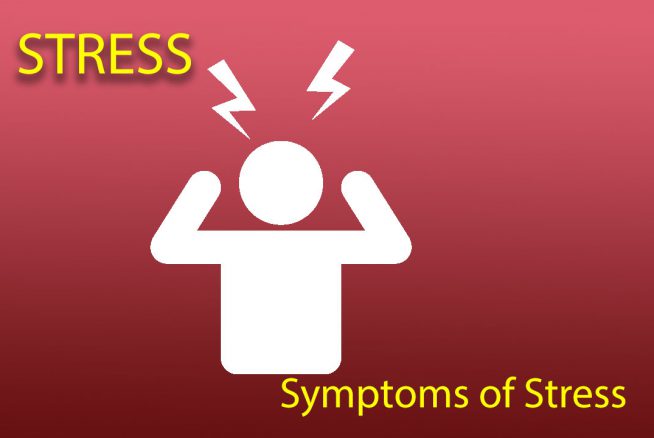Stress is something that everyone experiences from time to time. The good news is that you can reduce your levels of stress by learning about the signs of stress and how to deal with them. In this article, we will discuss some of the most common symptoms of stress and how you can deal with them.
Contents
What Is Stress?

Stress is a state of nervous tension, anxiety, or worry that can interfere with your daily life. It can lead to problems at work, school, or home.
Symptoms of stress vary but may include: feeling tired, tense, or anxious all the time; trouble concentrating; feeling irritable; having headaches or a racing heart; feeling like you can’t relax; sleeping too little or too much.
Signs and Symptoms of Stress

Signs and Symptoms of Stress:
1. Increased heart rate or blood pressure: This is a classic sign of stress. When we are stressed, our body responds by pumping more blood around our body. This can lead to an increased heart rate and blood pressure.
2. Racing thoughts: When we are stressed, our mind tends to race a lot. This can lead to thoughts that are intrusive and difficult to control.
3. Trouble concentrating: When we are stressed, our brain becomes less capable of focusing on anything. This can make it difficult to complete tasks or get started on what we want to do.
4. Mood swings: When we are stressed, our mood can swing quickly from happy to angry to sad. This can be very disruptive and difficult to manage.
5. Sleep problems: When we are stressed, it can be hard to get the sleep that we need. This can lead to fatigue and other problems with productivity.
6. Lack of energy: When we are stressed, it seems as if all of our energy just disappeared. We may have a hard time getting out of bed in the morning, and we may feel tired all the time.
7. Anxiety or panic attacks: When we are under stress, it can lead to anxiety or panic attacks. These episodes are characterized by feelings of intense fear or anxiety that won’t go away no matter how much we try to calm ourselves down.
8. Weight gain: When we are stressed, our appetite may change as well. We may start eating more than usual, and we may even begin to put on weight. This is because when we are stressed, we tend to withdraw from activities that we usually enjoy, like spending time with friends or going out to social events.
How To Manage Symptoms of Stress?

If you’re experiencing any of these symptoms, it’s important to talk to your doctor about how you’re coping and whether there might be a more serious problem. Here are some tips for managing stress:
1. Identify your triggers. What things make you feel stressed? Are there specific people or situations that set off your anxiety? Once you know what causes your stress, try to avoid them or manage them differently.
2. Set realistic goals. Don’t wait until everything is perfect before starting anything new. Break big projects down into smaller steps and establish specific deadlines for yourself. And don’t forget to let yourself off the hook once you reach a goal –self-compassion is key!
3. Getaway. Spend time alone each week, whether that’s by taking a walk or reading a book. solitude can help you recharge and focus on your thoughts and feelings.
4. Exercise. Exercise has been shown to reduce stress levels, improve moods, and boost energy levels. It’s also great for releasing endorphins – the “happy hormones”– which can make you feel good both physically and emotionally.
5. Connect with friends and family. Connecting with friends and family. Spending time with loved ones can help reduce stress levels and improve overall well-being. Also, try to spend time each day exploring your community and engaging in activities that you enjoy. This can help you meet new people and make new friends, which can also help reduce stress levels.
6. Practice mindfulness. When you are stressed, it’s easy to become focused on the negative aspects of your life. Try practicing mindfulness – paying attention to your thoughts and feelings, but without judgment. This practice can help you stay in control of your emotions and manage stress more healthily.
7. Get professional help. If you’re struggling to cope with stress, talking to a therapist may be a good idea. A therapist can help you identify and manage your stressors, develop coping strategies, and explore any underlying problems.
8. Find a hobby that you enjoy. This can help take your mind off of stressed thoughts and help you relax.
9. Taking breaks throughout the day. When you feel yourself starting to get stressed, take a five-minute break to do something calming, like reading or taking a walk outside.
10. Practicing yoga or another form of physical exercise. Exercise helps reduce stress levels and improve moods.
Conclusion
If you’re feeling stressed out, there are a few things you can do to ease the tension. First, get plenty of rest. When your body is rested and has time to repair itself, it will be better able to handle stress. Make sure that you aren’t working too hard – if possible, try to cut back on your workload or take some time off work. Secondly, try to relax as much as possible. This means both mentally and physically relaxing your muscles and letting go of any negative thoughts or feelings. Finally, find an activity that satisfies you – whether it’s going for a walk outdoors or spending time with friends and family. Doing something that makes you happy helps reduce the number of stress hormones in your bloodstream and allows you to focus on other things while under pressure.
Hope this article was of help to you! If you are suffering from mental health disorders, you may seek help from Therapy Mantra. We have a team of highly trained and experienced therapists who can provide you with the tools and skills necessary for overcoming mental health disorders. Contact us today to schedule an online therapy or download our free Android or iOS app for more information.


